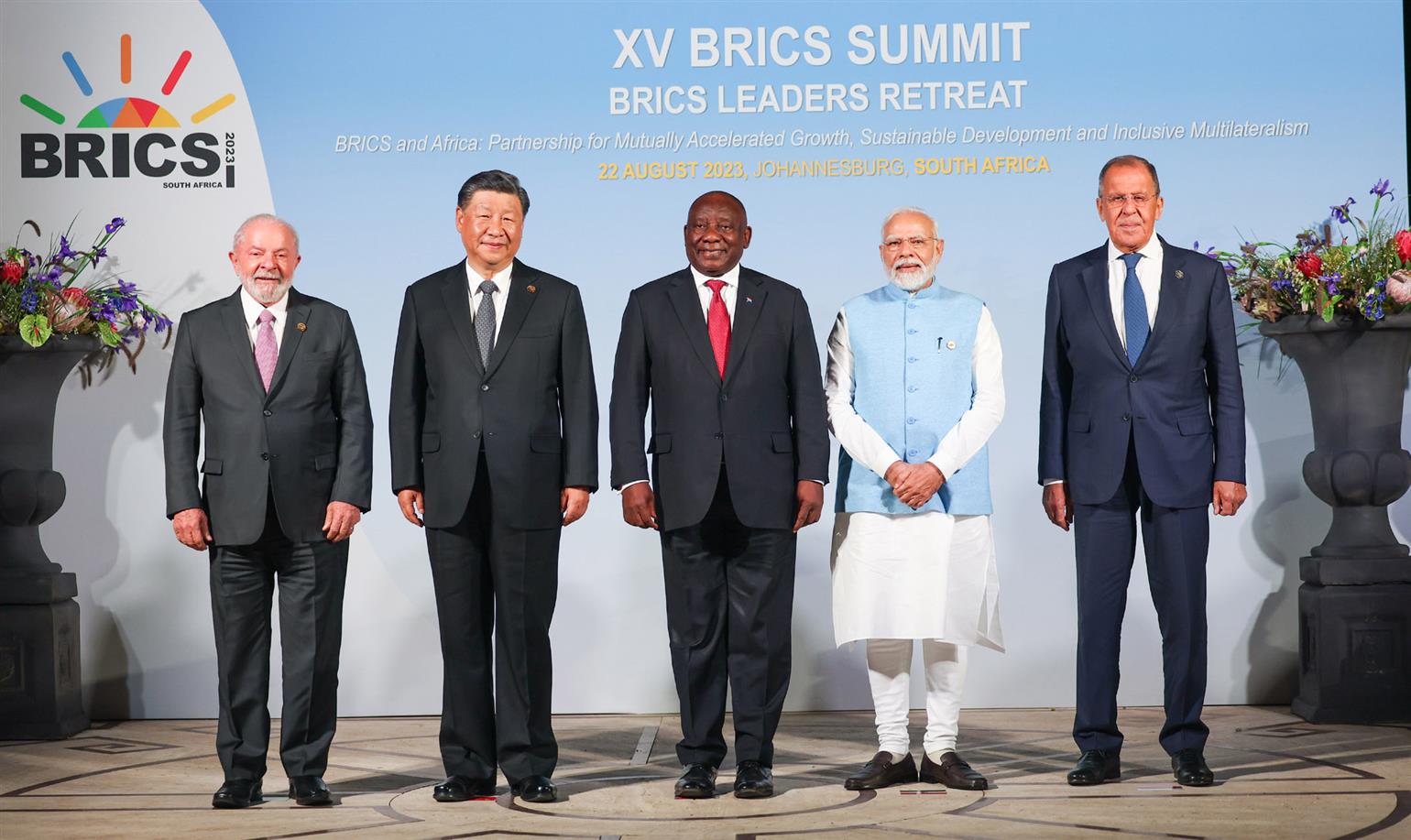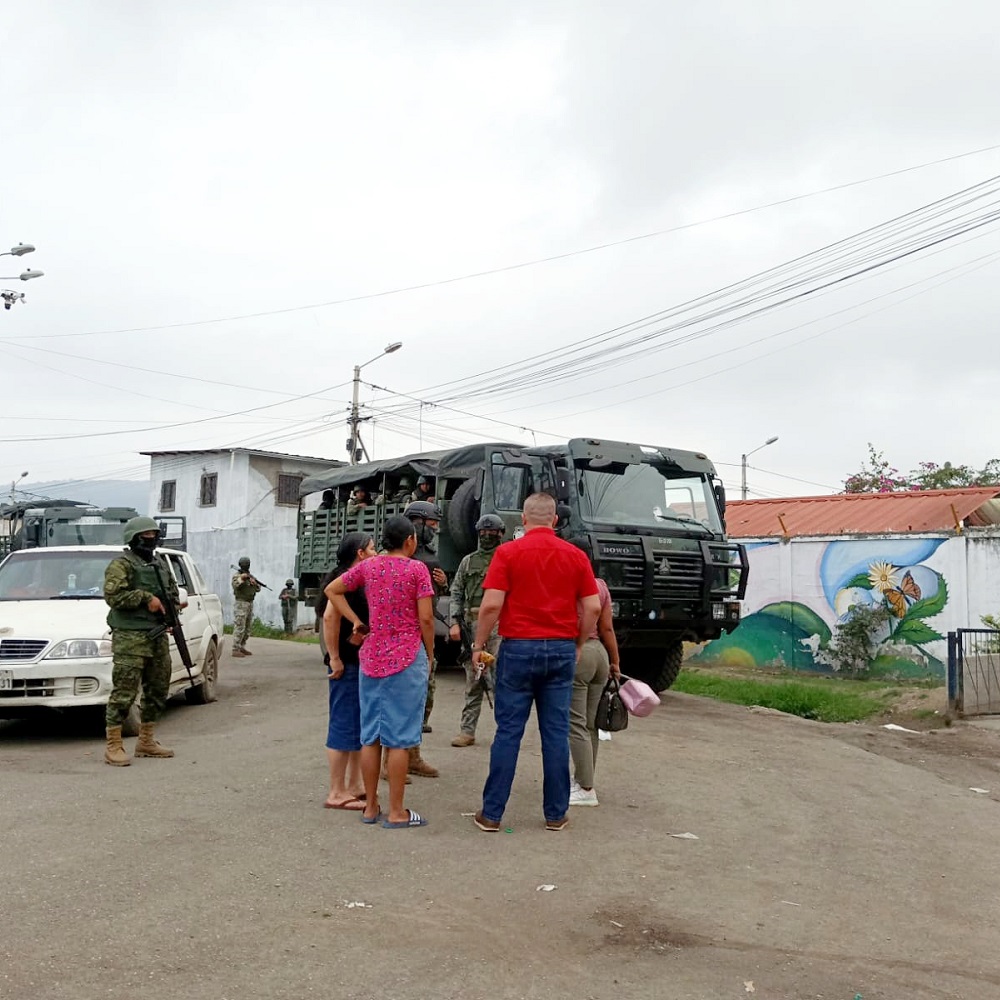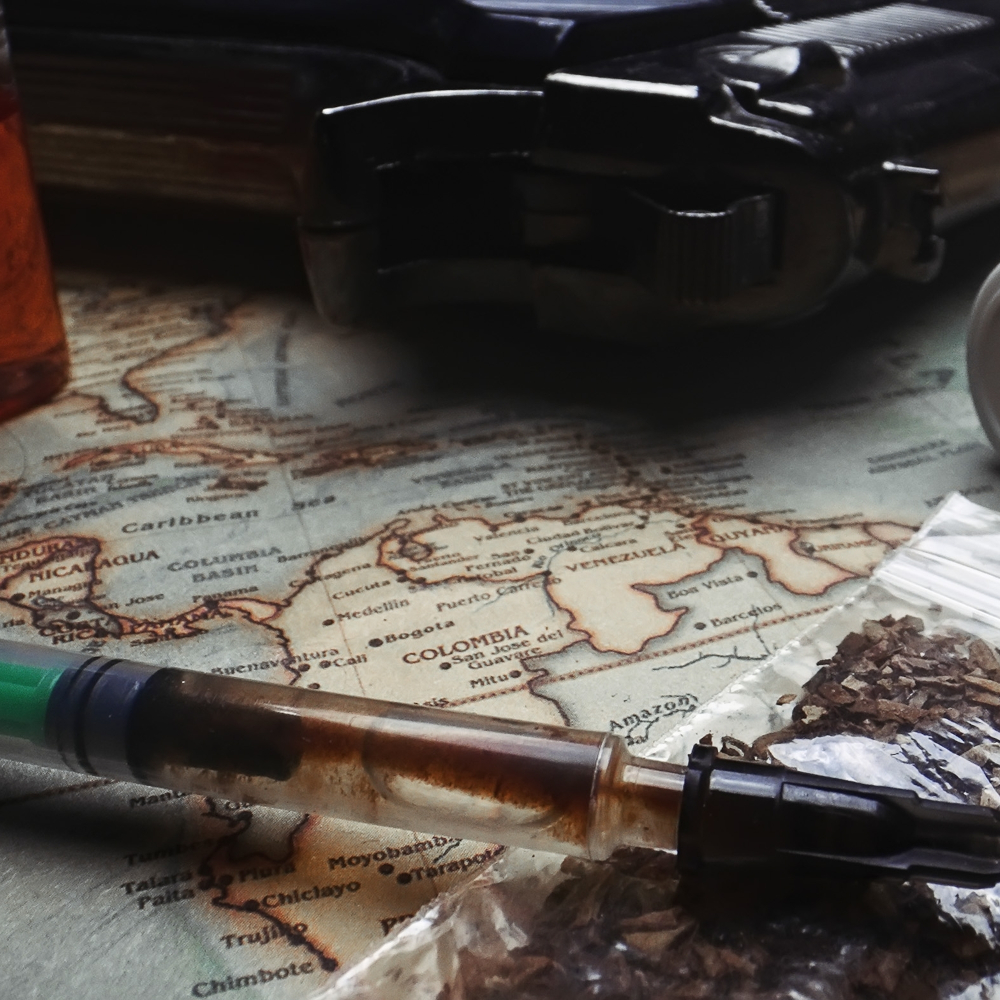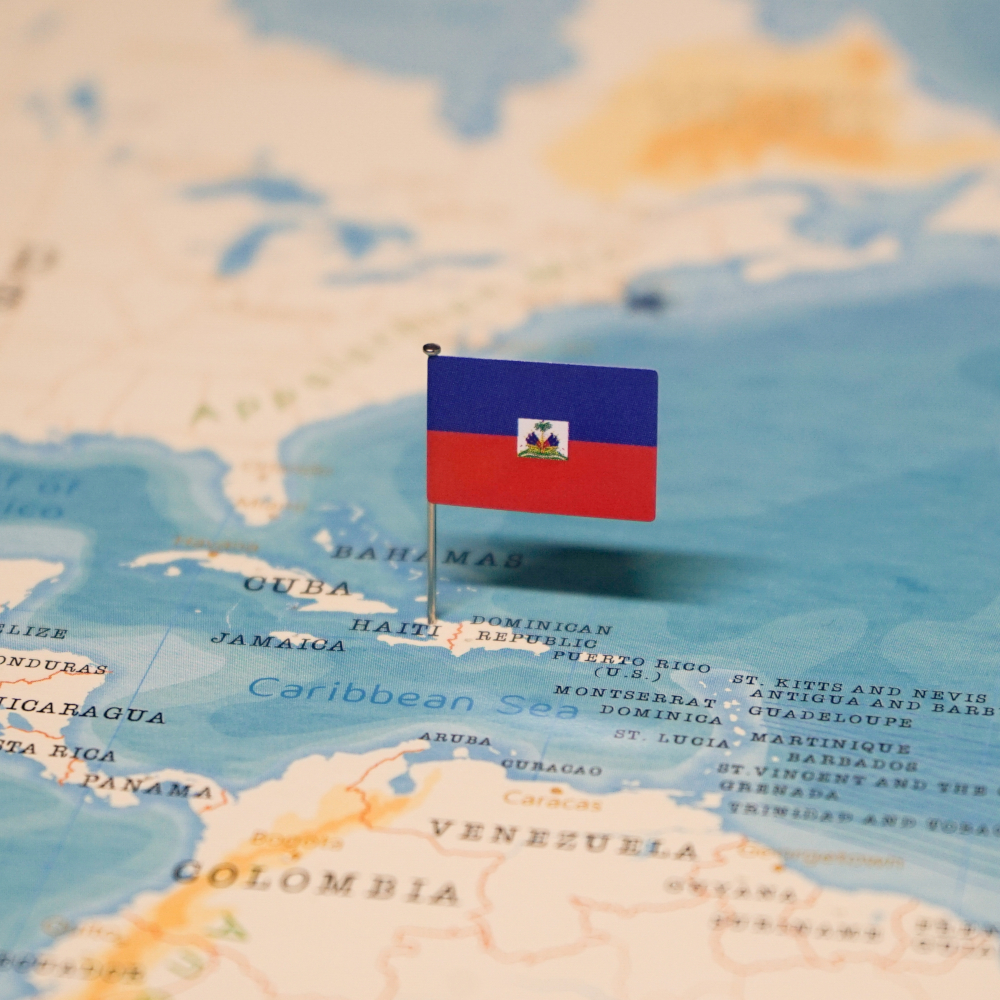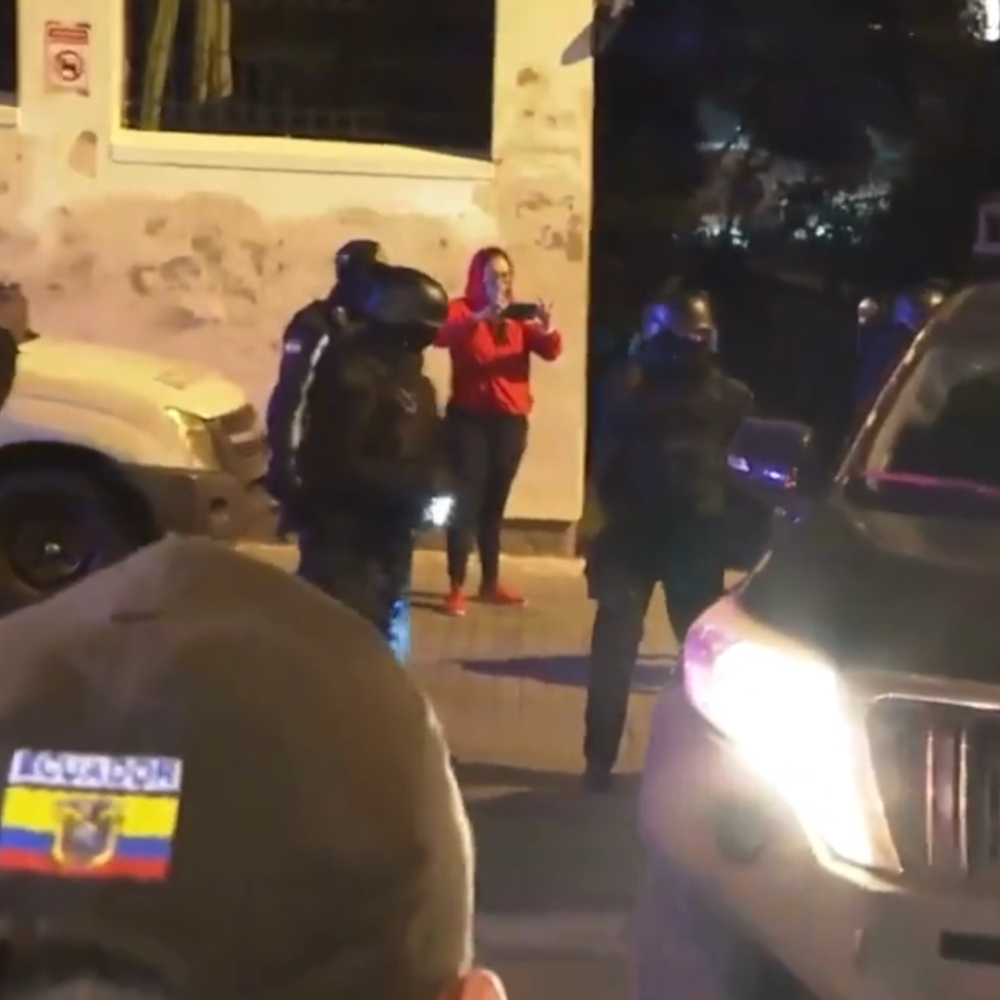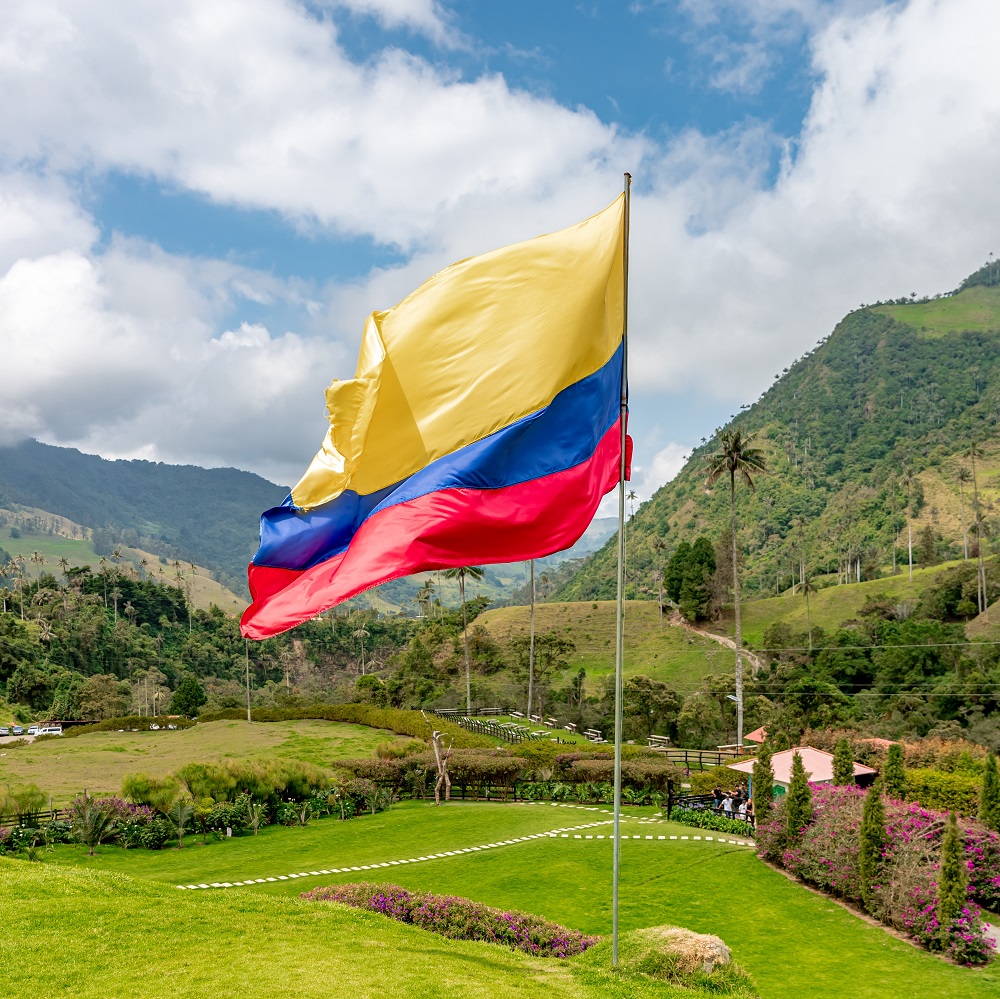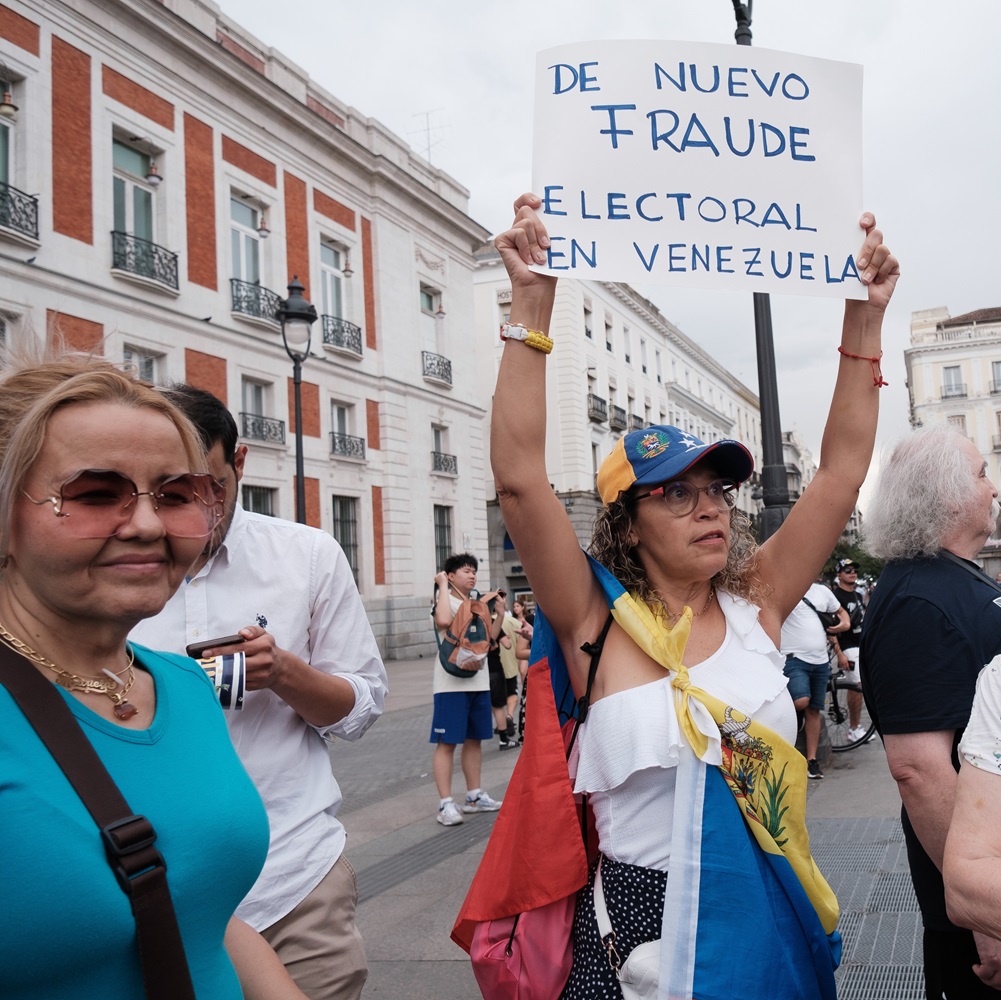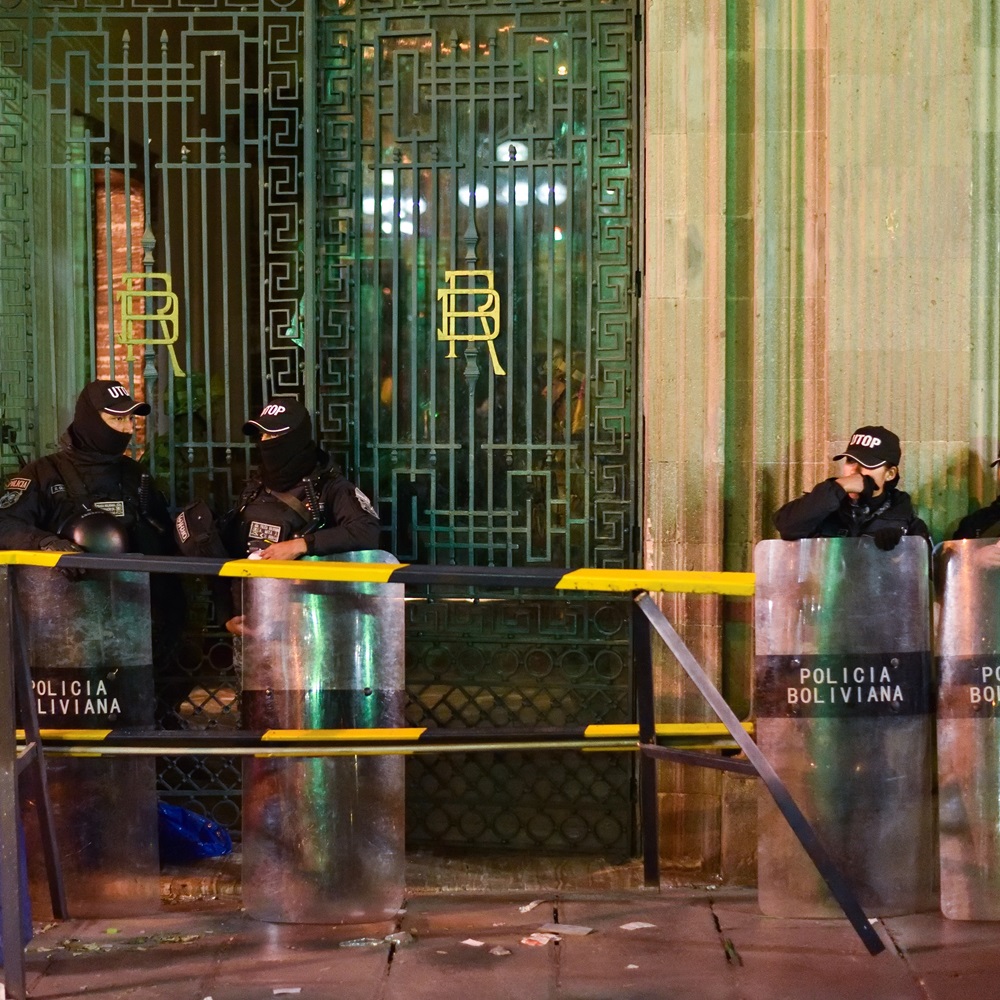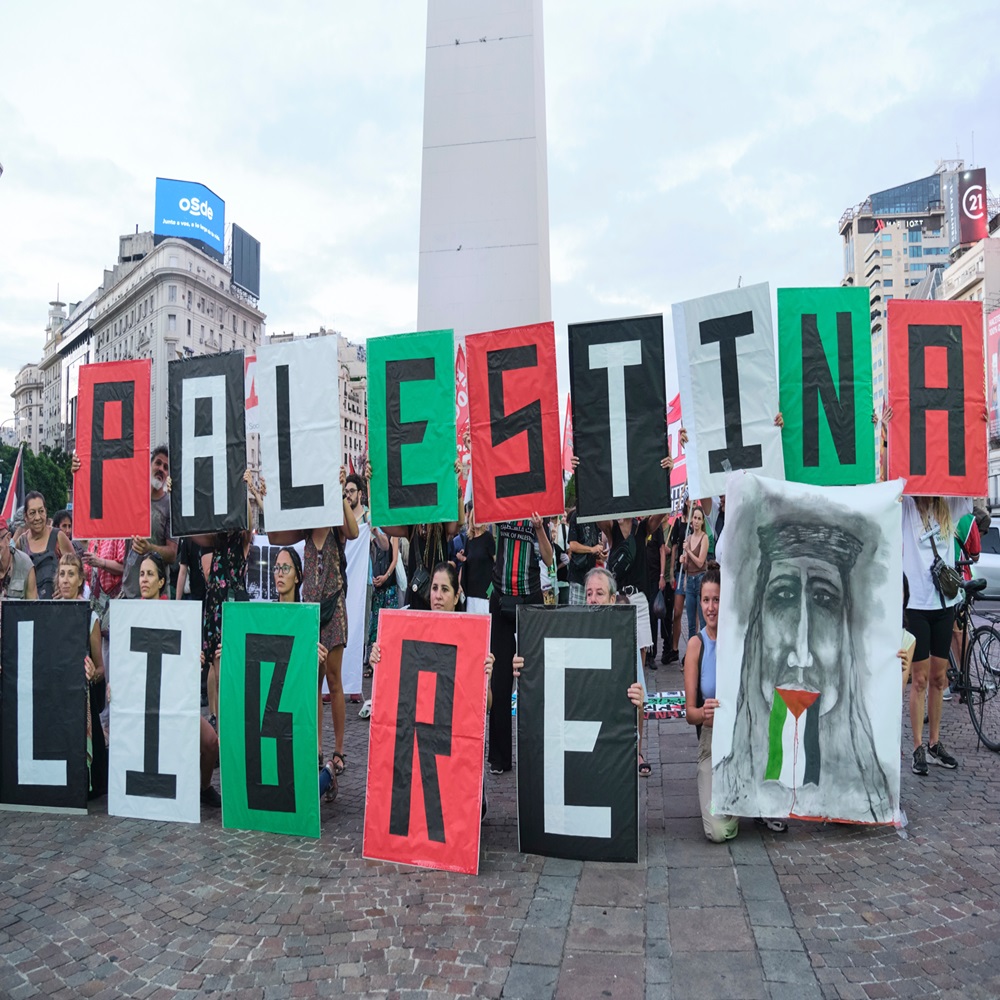The crisis that Bolivia faces
by Rosa Eugenia Sandoval Bustos , Verónica Castro Flores , Carolina Guadalupe Robles Dávila
한국어로 읽기Leer en españolIn Deutsch lesen
Gap
اقرأ بالعربيةLire en françaisЧитать на русском
Since 1825, Bolivia has averaged a new government every 26 and a half months. A study by Jonathan Powell and Clayton Thyne, Political Science professors at the University of Kentucky, indicates that from 1950 to 2010, there were 23 coup d'état cases in the country. These include 11 successful actions, defined as those that allowed the insurgents to control power for at least a week. The decade in which Bolivia recorded the most coups was the 1970s, with some years experiencing two consecutive cases. Another study by The Washington Post reports that during the country's independent history, there have been over 190 attempts at coups and revolutionary processes. Bolivian historian Manuel Contreras attributes this situation to elements of internal politics, such as the absence of strong institutions and "an unprofessional military prone to this type of adventures". [1]
Bolivia is currently facing multiple crises. The most prominent is in the political sphere, stemming from the division between President Luis Arce and former President Evo Morales, who lead different factions of the Movement for Socialism–Political Instrument for the Sovereignty of the Peoples (MAS-IPSP) and are vying for the party’s nomination for the 2025 presidential elections. This fragmentation is also reflected in a conflict with the judiciary, due to rulings made by judges regarding Morales' potential presidential candidacy, among other decisions. Additionally, the country is experiencing significant economic deterioration due to a decrease in foreign currency reserves and fuel shortages, which are heightening social discontent. In this context, it was reported that there was an attempted coup on June 26. The rift between the MAS leaders weakens the institutional framework needed to respond to these various crises. This article briefly reviews all these elements.
Background: resignation of former President Evo Morales
Evo Morales governed for three terms, from 2006 to 2019. In 2016, a referendum was held to consult citizens about modifying Article 168 of the country's Constitution, which stipulates that the presidency is for five years, with the possibility of re-election only once consecutively. At that time, the "no" vote won, and the constitutional reform project was narrowly rejected. [2] In 2017, Evo Morales filed a challenge of unconstitutionality before the Constitutional Court. The Court determined that Morales could run for a fourth consecutive presidential term in the 2019 elections, arguing that unlimited re-election is a right protected by the American Convention on Human Rights, which, it was claimed, takes precedence over the Bolivian Constitution. [3]
On October 20, 2019, Bolivia held general elections. [4] Initially, the results pointed to a runoff between President Evo Morales and former President Carlos Mesa. During the vote count, the Preliminary Results Transmission System (TREP) was abruptly halted and resumed almost 24 hours later with a shift in the trend. [5] Subsequently, Morales was declared the winner in the first round by a narrow margin. [6] Almost simultaneously with the announcement of the new results by the president of the Supreme Electoral Tribunal of Bolivia (TSE), María Eugenia Choque, dozens of police officers positioned themselves near the headquarters where the electoral authorities were receiving the tallies. Accusations of fraud and massive protests were followed, [7] demanding either a runoff or the annulment of the elections. [8]
As mentioned, before Evo Morales' presidency, the military in Bolivia attempted several times to overthrow the government in power. During the MAS leader’s mandate, institutional relations were strengthened. Several measures were taken to transform the military mentality and bring it closer to the Bolivian people. In 2009, the Armed Forces adopted the wiphala, the indigenous flag. In 2016, a mandatory “anti-imperialist" school was established for military personnel aspiring to be promoted. Morales referred to himself as the "first private soldier president," increased the military budget from $114 million in 2001 to $483 million in 2018, and was the only democratic president to purchase large quantities of weapons and equipment. At the same time, Morales provoked resentment among the military by removing "neoliberal" commanders and prosecuting the chiefs who handed over missiles to the United States in 2005. Additionally, he imprisoned the officers responsible for the 2003 repression in El Alto, which resulted in the death of 67 protesters. These measures failed to change the "conservative spirit of the armed forces." [9]
Over time, a rift was developed between the military and Morales. In late 2019, under the leadership of Williams Kalimán, members of the Army appeared on television asking for Morales' resignation, which led to his ousting. The former president initially rejected accusations of fraud from opposition groups and organizations like the Organization of American States (OAS) and denounced an attempted coup orchestrated by his political adversaries and sectors of the armed forces. [10] However, he agreed to call for new elections, but this was not enough to ease the tensions. [11]
On November 10, 2019, Evo Morales resigned from his position. [12] He then left Bolivia, first for Mexico and later for Argentina, where he was granted political asylum. [13] As a result, the presidential line of succession was disrupted, with several key government figures resigning. In this context, Jeanine Áñez, who was the second vice president of the Senate, assumed the interim presidency on November 12, 2019. Her proclamation took place in a parliamentary session without a quorum, which sparked controversy and accusations of illegitimacy from Morales' party, MAS, and other sectors. In his view, Morales stated from Mexico that "the most insidious and nefarious coup in the history" of his country had been carried out. [14]
Struggle among the leaders of the Movement for Socialism (MAS)
In the 2020 elections, Luis Arce, former Minister of Finance under Morales, was elected, running as the MAS candidate. [15] Former President Evo Morales returned to Bolivia a year after leaving the country, a day after Arce assumed the leadership of the Andean state. Analysts say that the dispute between the two politicians began on the day of Arce's inauguration in November 2020. In his inaugural speech, Arce did not mention Morales. Political scientist Susana Bejarano says that the president "made a textbook mistake by not giving Morales a place [...]. Without having a role, Morales exerted pressure through his influence, and Arce responded" [16] In recent months, Morales has referred to Arce as "the worst president of the democratic era" and has also accused him of leading the country’s economy to deterioration. For Arce, Morales is his "main opponent," and his supporters accuse Morales of wanting to control the country. [17]
In October 2023, Luis Arce and David Choquehuanca were expelled from MAS by the leadership aligned with Evo Morales due to their refusal to attend a congress held in Cochabamba. This clearly defined the two factions: the “Evista” faction, which supports Morales' leadership, and the "Arcista" (or renewal bloc) that did not recognize the expulsion of the president and Choquehuanca. [18] The Minister of Government, Eduardo del Castillo, a prominent figure in the Arcista sector, believes that Morales “conceives of MAS from the person rather than from social organizations.” On the other hand, Morales’ faction accuses the Arcistas of being close to the political right, trying to take over a social base that does not belong to them, and forgetting the revolutionary principles of the movement. [19]
Recently, in May, the Arcistas organized a congress in the city of El Alto, where they elected Grover García as the new president of MAS in place of Morales, but the Supreme Electoral Tribunal (TSE) did not approve this conclave. Meanwhile, the Evistas attempted to hold their congress in Villa Tunari, in the Cochabamba region, Morales' political and union stronghold, but the TSE also did not recognize that meeting. This has temporarily left the MAS candidacy for the 2025 presidential elections in suspense. [20] Both groups have tried several times to hold national congresses to appoint a new leadership (and thus comply with the Electoral Law) and to select a presidential candidate. [21] However, the TSE has disqualified all the sessions and insists that both factions hold "a joint congress" to comply with the party's statutes.
In September 2023, Morales announced his candidacy for the presidency, challenging Arce, who is expected to seek re-election. The former president has accused the government of trying to block his candidacy and has also threatened that there will be "upheaval" in Bolivia if he is disqualified. [22]
The Bolivian Congress is bicameral; the Chamber of Deputies consists of 130 representatives, of which MAS holds 75 seats [23], and 24 of them are Arcistas. Meanwhile, the Senate is made up of 36 members [24], with 21 belonging to the MAS caucus, of which 7 are Arcistas. [25]
The party also celebrated its 29th anniversary, albeit in a divided manner, with the Arcistas in La Paz and the Evistas in Santa Cruz. This struggle has extended to the Congress, where Arce lost the majority due to the MAS split. Political scientist Fernando Mayorga says that the fracture caused legislators close to Morales to move forward with agreements with the opposition to pass various laws, such as the suspension of the mandates of the Judicial branch magistrates, or to block others, such as the approval of external loans for public finances. [26]
This situation has led the government to accuse Morales of provoking a "structural crisis scenario" to "shorten" Arce's mandate. The president has even stated that he is the target of a "soft coup" by Morales' followers. On the other hand, the former president accuses the government of incompetence and corruption [27] and has said that he has "ideological, programmatic, organizational, and even ethical differences" with Arce. He has also pointed out that there are no opportunities for reconciliation with the government because it has shifted to the right. [28]
Confrontation with the Judiciary
Part of the struggle between the former president and the current president involves the Judiciary, which Evo Morales considers aligned with Luis Arce. Bolivia is the only country in Latin America that elects its high judicial courts [29] by popular vote since 2009. That is how two elections have been held, in 2011 and 2017. [30] At the end of 2023, the term of the magistrates concluded; however, the lack of agreements within MAS (and with the opposition) to define the candidates has delayed the judicial election process. [31] The Plurinational Constitutional Tribunal (TCP) also contributed to this delay by declaring some laws approved by Parliament to convene the judicial elections unconstitutional. For these reasons, the TCP decided to extend its mandate and that of the other judicial bodies to "avoid a power vacuum."
In early June, during a joint session of the Senate and the Lower House, Evistas and opposition legislators approved a bill that suspends the magistrates of the high judicial courts, without the presence of Arcistas legislators. This meeting was convened by the president of the Senate, Andrónico Rodríguez, an ally of Morales. The TCP deemed this process illegal, as the senator did not have the backing to assume the role of president of the Assembly. [32] The Tribunal pointed out that the presidency of Congress is the responsibility of the country's vice president, David Choquehuanca, who, according to Rodríguez, was acting as interim president due to a trip by the country's president, Luis Arce. [33]
The law also nullifies all the rulings that the magistrates approved in the last year. A source close to Vice President Choquehuanca stated that overturning these rulings would be "chaotic" and argued that it aims to provoke a political and social crisis. Meanwhile, other experts, such as the constitutionalist Israel Quino, believe that nullifying these legal acts is necessary for the country to "return to the rule of law." [34]
At the end of 2023, the TCP issued a ruling nullifying indefinite re-election in the country, which disqualifies Morales from running in the 2025 elections. This decision overturns the 2017 ruling that allowed the former president to be re-elected that year. If the TCP is not renewed, this ruling cannot be reviewed.
Supporters of the former president are demanding the resignation of the magistrates from the highest courts, alleging that the Judiciary "follows orders from the government." Meanwhile, Evo Morales accuses the government of sabotaging the judicial elections. After a series of road blockades by Morales' followers, President Arce issued a law in February aimed at holding the elections in September. The Supreme Electoral Tribunal announced that it expects the Congress to issue the call for the elections. [35]
The economic situation and social discontent in Bolivia
Bolivia's economy grew at an annual rate of 4.7% from 2005 to 2019. The government channeled the profits from natural gas exports into social programs and salary increases, which helped reduce poverty from 60% in 2006 to 37.2% in 2019. [36] A new indigenous middle class also emerged. Gas production increased after Evo Morales' 2006 decree to nationalize hydrocarbons. Additionally, Bolivia has the world's largest lithium reserves, with 23 million metric tons (MT). Along with Chile and Argentina, these countries form the "Lithium Triangle," holding more than two-thirds of the world's reserves. However, Bolivia's production of this element is still very low (600 tons per year), presenting significant growth opportunities for the future. [37]
Since the end of the raw materials boom in 2014, Bolivia relied on high public spending and domestic credit to sustain economic growth. Over time, these measures increased debt and reduced international reserves and accumulated fiscal savings. The COVID-19 pandemic worsened the situation. After it ended, the Bolivian economy recovered. However, the level of indebtedness, the decline in natural gas production, and modest international reserves have put pressure on the foreign exchange market, where a parallel exchange rate has emerged. [38]
Natural gas production decreased from 56.6 million cubic meters per day (Mm³/d) in 2016, with oil revenue of $1.755 billion, to 31.9 Mm³/d in 2023, with an income of $2.048 billion, according to official information. Bolivia has seen low production in its oil and gas fields, requiring the import of gasoline and diesel, which are then sold at subsidized prices in the domestic market — a cost that is increasingly difficult to sustain. [39]
“As a result of the decline in natural gas production, the amount of dollars coming into the country has decreased," says economist Jaime Dunn. According to the Central Bank reports, international reserves dropped from $15.122 billion in 2014 to $1.796 billion in April 2024 [40], attributed to the decline in revenue from gas sales to Brazil and Argentina and the lack of approval for new loans in the Congress. [41] The prices of basic goods have also increased. For months, long lines of people trying to obtain dollars have been observed, as well as the expansion of a parallel market for this currency.
The shortage of dollars has impacted both importers and exporters. The most affected product has been fuel purchased from abroad. Bolivia imposed a subsidy on gasoline and diesel more than 15 years ago. Now, specialists warn the country doesn't have the dollars to buy them. This is a problem because Bolivia imports 56% of the gasoline and 86% of the diesel it consumes. Bolivian President Luis Arce has acknowledged that the situation is "pathetic." According to him, it is due to the "lack of a clear hydrocarbon policy in the country" in recent years. [42] To mitigate the situation, he ordered the militarization of the fuel supply system to prevent the smuggling of subsidized diesel to neighboring countries. [43]
This combination of fuel and currency shortages has sparked protests from merchants and transporters in various cities across the country. Several sectors have taken to the streets to demand a solution to the rising costs of essential goods. [44] In 2023, there were almost 200 days of blockades. To address the situation, in February, Economy Minister Marcelo Montenegro announced a series of economic reforms, such as easing export restrictions and creating a diesel auction for large producers. However, these measures still seem insufficient. The tension generated by the situation has also affected Arce's popularity, which has dropped to 18% [46] according to polls. [45] Some social protest calls are attributed to supporters of Evo Morales, although these groups deny it. [47]
To exacerbate these problems, the country has experienced droughts and high temperatures, which have damaged agricultural production and caused wildfires in the Bolivian Amazon. Lake Titicaca, among other bodies of water, has dropped to historically low levels. Residents of the El Alto neighborhood, in the heights of La Paz, only receive water sporadically during the day. [48]
Reactions after the attempted coup
In this context of political strife and economic deterioration, it was reported on June 26th that there was an attempted coup led by General Juan José Zúñiga, who has been dismissed and is now in prison. [49] The Minister of Government, Eduardo Del Castillo, stated that the insurrection had been planned for three weeks. The official indicated that the action resulted in 12 gunshot injuries and led to the arrest of about 20 military personnel and civilians. A new high command has also been appointed. Del Castillo emphasized that although the government had received information about previous attempts at destabilization and "soft coups," none had reached the scale of the reported events. [50]
Analysts believe that Zúñiga appears to be an unhappy general with little support. [51] According to various journalistic reports, he was perceived as the "general of the people." [52] He was appointed as the General Commander of the Army in November 2022 and reaffirmed in January of this year by the president. Before that, he held the position of Chief of the General Staff. According to the Bolivian newspaper ‘El Deber’, Zúñiga was the closest military officer to Arce and was at odds with former President Evo Morales. [53] According to Army records, in 2020, Zúñiga ranked 48th out of 65 officers in the 1990 class.
‘El Deber’ notes that Zúñiga has close ties with mining and union sectors. However, throughout his career, he has faced accusations of misappropriation of public funds, for which he was sanctioned. In 2022, Zúñiga was mentioned by Evo Morales as the leader of an Army group that engaged in "permanent persecution" against political leaders like him. This elite faction, known as the ‘Pachajchos’, carried out military intelligence operations, [54] they had influence in the assignment of officers' posts, and played an important role in combating smuggling. [55]
Following the brief insurrection, it is expected that the fracture between former President Evo Morales and President Luis Arce will deepen. On one hand, the government's version claims to have successfully quelled an attempted military coup in less than four hours. Retired Army Colonel Jorge Santistevan described Zúñiga as an amateur, leading an uprising without military consent, with improvised tactics and an empty speech. "This was an adventure, not a coup," stated analyst Omar Durán. [56]
On the other hand, Evo Morales and opposition sectors describe the events as "a self-coup," "a political show," "an adventure," or "a parody" by Luis Arce Catacora, allegedly orchestrated with General Zúñiga and his supporters to victimize the president and boost his popularity. [57] This version aligns with what Zúñiga declared when he was arrested. In several posts on the social network "X", Morales has commented on the situation. He criticized the president's actions, called for a thorough investigation of the events, and even apologized to the international community for seeking their support in the face of the apparent coup (a narrative later adopted by Argentina). [58]
Additionally, Evista Senator Luis Adolfo Flores argued that there was no police action to prevent the seizure of the plaza, for example, and he highlighted the "inaction" of the Defense Minister Edmundo Novillo. Another member of the Upper House, William Torrez, agreed that it was not a genuine coup. [59] Senate President Rodríguez posted on social media that "between the self-extended magistrates, a supposed coup or self-coup, the Bolivian people are sinking into uncertainty. This institutional disorder is leading the country to a situation of chaos and distrust." [60].
Luis Arce says that foreign interests are involved in the attempted coup, aiming to benefit from Bolivia's natural resources. He also claims that former President Evo Morales is willing to go to any lengths, even questioning the government's actions, in order to be a candidate for the 2025 elections. [61]
On the other hand, the failed coup in Bolivia could worsen the current dollar shortage in the Andean country, said the global investment bank BancTrust & Co., based in London. "Although the coup apparently failed, the crisis will leave its mark. Political instability and the government's weakness will likely make it difficult for authorities and the private sector to access alternative sources of hard currency financing in the future, exacerbating the current crisis," BancTrust & Co. said in a commentary on the situation in Bolivia. [62]
On the other hand, the rift between Arce and his mentor, Evo Morales, weakens Bolivian democracy, blocks any strategy against the economic crisis, keeps Congress paralyzed, and opens the door to ventures like that of General Zúñiga. Researcher Armando Ortuño warns that "the military coup was a symptom of political disorder. There is a weak government facing multiple crises." [63] Ortuño points out that in the short term, to address the political crisis, there must be some sort of agreement between Arce and Morales. [64] Jean Pierre Lavaud, a French sociologist, believes that the current major problem stems from "the internal struggle within MAS." [65] Another possible effect of this rift is that the opposition could win the next elections. [66]
Additionally, Evo Morales' vice president, Álvaro García Linera, fears that this power struggle between the two leaders could strengthen the military. It will be problematic if Morales' supporters use the military to weaken the president, while the Evistas use them to contain the former president. García Linera argues that the military structure always has its own agenda and could pose a risk to national stability.
Legal notice
The article was created and published by the Gilberto Bosques Center for International Studies of the Senate of the Republic of Mexico (webpage https://centrogilbertobosques.senado.gob.mx/). The analysis and research do not represent the position of the Senate or its members.
References
[1] Gerardo Lissardy, “La tumultuosa historia de Bolivia como "el país con más intentos de golpe de Estado" desde 1950 (y por qué su crisis actual sorprende a los expertos)”, BBC, 28 de junio de 2204. Consultado el 29 de junio de 2024 en: https://www.bbc.com/mundo/articles/cne4787lpnzo
[2] Jaime Cárdenas Gracia, “Informe sobre el referéndum boliviano de 2016”, Boletín mexicano de derecho comparado, 50(148), 81-112, abril de 2017. consultado el 28 de junio de 2024 en: https://www.scielo.org.mx/scielo.php?script=sci_arttext&pid=S0041-86332017000100081
[3] Jorge Sánchez Morales, “Elecciones generales en Bolivia, 2019. Una reflexión de derecho comparado”, Tribunal Electoral del Poder Judicial de la Federación, 2020. Consultado el 28 de junio de 2024 en: https://www.te.gob.mx/editorial_service/media/pdf/250320241450414990.pdf
[4] Boris Miranda, “Elecciones en Bolivia: Carlos Mesa acusa a Evo Morales de ser el "protagonista de un golpe de Estado" y llama a continuar las protestas”, BBC News Mundo, 23 de octubre de 2019. Consultado el 28 de junio de 2024 en: https://www.bbc.com/mundo/noticias-america-latina50161520
[5] BBC News Mundo, Elecciones en Bolivia: suspenden el recuento provisional de votos cuando todo apuntaba a una segunda vuelta entre Evo Morales y Carlos Mesa, 21 de octubre de 2019. Consultado el 28 de junio de 2024 en: https://www.bbc.com/mundo/noticias-america-latina-50119933
[6] BBC News Mundo, “Elecciones en Bolivia: el conteo preliminar sitúa a Evo Morales como virtual ganador sin necesidad de segunda vuelta y en medio de denuncias de fraude”, 21 de octubre de 2019. Consultado el 28 de junio de 2024 en: https://www.bbc.com/mundo/noticias-america-latina50134370
[7] Swiss Info, “Claves sobre el polémico proceso por fraude electoral de 2019 en Bolivia”, 28 de julio de 2021. Consultado el 28 de junio de 2024, en: https://www.swissinfo.ch/spa/claves-sobre-el-pol%C3%A9mico-proceso-por-fraude-electoral-de-2019-en-bolivia/46822282
[8] Boris Miranda, “Elecciones en Bolivia: por qué hay cuestionamientos y denuncias de fraude sobre los resultados preliminares que sitúan a Evo Morales como ganador en primera vuelta”, BBC News Mundo, 22 de octubre de 2019. Consultado el 28 de junio de 2024 en: https://www.bbc.com/mundo/noticias-america-latina-50146649
[9] Fernando Molina, “De Evo Morales a Luis Arce: las conspiraciones de los militares bolivianos contra el Movimiento al Socialismo”, El País, 28 de junio de 2024. Consultado el 1 de julio de 2024 en: https://elpais.com/america/2024-06-29/de-evo-morales-a-luis-arce-las-conspiraciones-de-losmilitares-bolivianos-contra-el-movimiento-al-socialismo.html
[10] Norberto Paredes, “Evo Morales: ¿hubo un golpe de Estado en Bolivia? BBC Mundo consultó a 6 expertos”, BBC, 13 de noviembre de 2019. Consultado el 28 de junio de 2024 en: https://www.bbc.com/mundo/noticias-america-latina-50375002
[11] Fernando Molina, “Bolivia: ¿golpe o (contra)revolución?”, Nueva Sociedad, noviembre de 2019. Consultado el 28 de junio de 2024 en:https://www.nuso.org/articulo/bolivia-golpe-ocontrarevolucion/?fbclid=IwAR0dIgxoErXdbi2oKUw8JGkYxTFfRlKZaJFGm9DlTN7b0zJ3VwNGXPWYli0
[12] Abraham Zamorano y Boris Miranda, “Evo Morales renuncia a la presidencia de Bolivia: 5 claves que explican por qué tuvo que dimitir el mandatario indígena”, BBC. News Mundo, 10 de noviembre de 2019. Consultado el 28 de junio de 2024 en: https://www.bbc.com/mundo/noticias-america-latina50369434#:~:text=Evo%20Morales%20pas%C3%B3%20en%20menos,el%20que%20anunci%C3%B3%20su%20dimisi%C3%B3n.
[13] BBC News Mundo, “Asilo a Evo Morales en México: las consecuencias para AMLO del paso del expresidente boliviano”, 14 de diciembre de 2019. Consultado el 28 de junio de 2024 en: https://www.bbc.com/mundo/noticias-america-latina-50790682
[14] Deutsche Welle, “Jeanine Áñez asume presidencia interina de Bolivia”, 13 de noviembre de 2019. Consultado el 1 de julio de 2024 en: https://www.dw.com/es/jeanine-%C3%A1%C3%B1ez-asume-presidencia-interina-de-bolivia/a-51219169
[15] BBC News Mundo, “Luis Arce, ganador de las elecciones en Bolivia, a la BBC: "Si Evo Morales quiere ayudarnos será muy bienvenido pero eso no quiere decir que él estará en el gobierno"”, 20 de octubre de 2020. Consultado el 2 de julio de 2024 en: https://www.bbc.com/mundo/noticiasamerica-latina-54610692
[16] Federico Rivas Molina, “La fractura entre Luis Arce y Evo Morales ensombrece el futuro de Bolivia”, El País, 30 de junio de 2024. Consultado el 1 de julio de 2024 en: https://elpais.com/america/2024-07-01/la-fractura-entre-luis-arce-y-evo-morales-ensombrece-el-futuro-de-bolivia.html
[17] EFE, “Momentos clave que llevaron a Bolivia a su actual crisis política y social”, El Universal, 27 de junio de 2024. Consultado el 1 de julio de 2024 en: https://www.eluniversal.com.mx/mundo/momentos-clave-que-llevaron-a-bolivia-a-su-actual-crisis-politica-y-social/
[18] Fernando Molina, “El partido de Evo Morales expulsa al presidente Luis Arce y agrava la guerra política en Bolivia”, El País, 5 de octubre de 2023. Consultado el 3 de julio de 2024 en: https://elpais.com/internacional/2023-10-05/el-partido-de-evo-morales-expulsa-al-presidente-luis-arce-y-agravala-guerra-politica-en-bolivia.html
[19] Federico Rivas Molina, “La fractura entre Luis Arce y Evo Morales…”, op. cit.
[20] EFE, “Momentos clave…”, op. cit.
[21] Fernando Molina, “Evo Morales anuncia que será candidato a la presidencia de Bolivia en medio de la guerra con Luis Arce”, El País, 24 de septiembre de 2023. Consultado el 1 de julio de 2024 en: https://elpais.com/internacional/2023-09-24/evo-morales-anuncia-que-sera-candidato-a-lapresidencia-de-bolivia-en-medio-de-la-guerra-con-luis-arce.html
[22] Fernanda Paúl, “3 claves para entender la crisis política y económica detrás del intento de golpe de Estado denunciado por el presidente de Bolivia”, BBC, 27 de junio de 2024. Consultado el 2 de julio de 2024 en: https://www.bbc.com/mundo/articles/c6p2r06lenjo
[23] Cámara de Diputados de Bolivia, ”Composición de la Cámara de Diputados”. Consultado el 3 de julio de 2024 en: https://diputados.gob.bo/diputados-home/
[24] Cámara de Senadores de Bolivia, ”Bancadas”. Consultado el 3 de julio de 2024 en: https://web.senado.gob.bo/legislativa/bancadas
[25] Marco Antonio Chuquimia, ”El 'evismo' es mayoría en el Senado: tiene la presidencia y la jefatura de bancada”, El Deber, 18 de octubre de 2023, consultado el 3 de julio de 2024 en: https://eldeber.com.bo/pais/el-evismo-es-mayoria-en-el-senado-tiene-la-presidencia-y-la-jefatura-debancada_343939
[26] Fernando Molina, “Luis Arce reconoce que la falta de diésel en Bolivia es “patética””, El País, 12 de junio de 2024. Consultado el 2 de julio de 2024 en: https://elpais.com/america/2024-06-13/luis-arce-reconoce-que-la-falta-de-diesel-en-bolivia-es-patetica.html
[27] Fernanda Paúl, op cit.
[28] Sputnik, ”Evo Morales descarta reconciliación dentro del MAS”, Elpais.cr, 12 de marzo de 2024. Consultado el 2 de julio de 2024 en: https://www.elpais.cr/2024/03/12/evo-morales-descarta-reconciliacion-dentro-del-mas/
[29] Se eligen por voto popular los cargos del Consejo de la Magistratura, el Tribunal Constitucional Plurinacional, el Tribunal Supremo de Justicia y el Tribunal Agroambiental. Fernando Molina, “La elección popular de jueces en Bolivia se atasca en el Congreso”, El País, 30 de agosto de 2023. Consultado el 28 de junio de 2024 en: https://elpais.com/internacional/2023-08-31/la-eleccion-popular-de-jueces-en-bolivia-se-atasca-en-elcongreso.html
[30] Idem.
[31] Idem.
[32] Fernando Molina, “El Parlamento boliviano suspende a los magistrados de las altas cortes en una sesión declarada ilegal por el Constitucional”, El País, 7 de junio de 2024. Consultado el 28 de junio de 2024 en: https://elpais.com/america/2024-06-08/el-parlamento-boliviano-suspende-a-losmagistrados-de-las-altas-cortes-en-una-sesion-declarada-ilegal-por-el-constitucional.html
[33] Infobae, “El Congreso de Bolivia aprobó el cese del mandato de altos magistrados en una polémica sesión que comenzó a oscuras”, 7 de junio de 2024. Consultado el 29 de junio de 2024 en: https://www.infobae.com/america/america-latina/2024/06/07/el-congreso-de-bolivia-aprobo-el-cesedel-mandato-de-altos-magistrados-en-una-polemica-sesion-que-comenzo-a-oscuras/
[34] Fernando Molina, “El Parlamento boliviano…”, op. cit. suspende a los magistrados de las altas cortes en una sesión declarada ilegal por el Constitucional”, El País, 7 de junio de 2024. Consultado el 28 de junio de 2024 en: https://elpais.com/america/2024-06-08/el-parlamento-bolivianosuspende-a-los-magistrados-de-las-altas-cortes-en-una-sesion-declarada-ilegal-por-el-constitucional.html
[35] Fernanda Hernández Orozco, “¿Cómo le ha ido a Bolivia con la elección directa de jueces?”, Expansión, 18 de junio de 2024. Consultado el 28 de junio de 2024 en: https://expansion.mx/mundo/2024/06/18/como-le-ha-ido-a-bolivia-con-la-eleccion-directa-de-jueces
[36] Congressional Research Service, “Bolivia: An Overview, 16 de mayo de 2022”. Consultado el 2 de julio de 2022 en: https://crsreports.congress.gov/product/pdf/IF/IF11325
[37] Ivan Castano, “Bolivia has the World's Largest Lithium Reserves. Is it Worth Investing In?”, 31 de julio de 2023. Consultado el 1 de julio de 2024 en: https://www.nasdaq.com/articles/bolivia-has-the-worlds-largest-lithium-reserves-is-it-worth-investing-in
[38] Banco Mundial, “El Banco Mundial en Bolivia”, 14 de abril de 2024. Consultado el 1 de julio de 2024 en: https://www.worldbank.org/en/country/bolivia/overview
[39] Redacción Movant, “Bolivia: baja en la producción de gas y su impacto económico”, infobae, 12 de mayo de 2024. Consultado el 1 de julio de 2024 en: https://www.infobae.com/movant/2024/05/12/bolivia-baja-en-la-produccion-de-gas-y-su-impacto-economico/
[40] Paúl, “3 claves…”, op .cit.
[41] France 24, “Bolivia cierra 2023 con las reservas internacionales más bajas en 17 años”, 5 de enero de 2024. Consultado el 1 de julio de 2024 en: https://www.france24.com/es/minuto-a-minuto/20240105-bolivia-cierra-2023-con-las-reservas-internacionales-m%C3%A1s-bajas-en-17- a%C3%B1os
[42] Paúl, “3 claves…”, op. cit. o
[43] Pablo Stefanoni, “Bolivia: claves de la asonada militar y sus coletazos”, Nueva Sociedad, junio de 2024. Consultado el 2 de julio de 2024 en: https://www.nuso.org/articulo/bolivia-claves-de-la-asonada-militar-y-sus-coletazos/
[44] Deutsche Welle, “Militares controlan estaciones de combustible en Bolivia”, 13 de junio de 2024. Consultado el 1 de julio de 2024 en: https://www.dw.com/es/militares-controlan-estaciones-de-combustible-en-bolivia/a-69348165
[45] Fernanda Paúl, “3 claves…”, op. cit.
[46] Fernando Molina, “Luis Arce reconoce…”, op. cit. l
[47] Fernando Molina, “Fracasa el intento de golpe de Estado en Bolivia: detenido el general rebelde”, El País, 26 de junio de 2024. Consultado el 1 de julio de 2024 en: https://elpais.com/america/2024-06-26/el-presidente-de-bolivia-denuncia-movilizaciones-irregulares-del-ejercito.html
[48] Ivan Ellis, “La caída de Bolivia en un profundo caos y sus implicaciones para la región”, Infobae, 25 de noviembre de 2024. Consultado el 2 de julio de 2024 en: https://www.infobae.com/america/america-latina/2023/11/25/la-caida-de-bolivia-en-un-profundo-caos-y-sus-implicaciones-para-laregion/
[49] Centro de Estudios Internacionales Gilberto Bosques, “Intento fallido de golpe de Estado en Bolivia”, Senado de México, 26 de junio de 2024. Consultado el 1 de julio de 2024 en: https://centrogilbertobosques.senado.gob.mx/analisisinvestigacion/contexto/fallido-golpe-bolivia/viewdocument
[50] Infobae, “El Gobierno de Bolivia reveló que los militares planearon el golpe durante tres semanas”, 27 de junio de 2024. Consultado el 1 de julio de 2024 en: https://www.infobae.com/america/america-latina/2024/06/27/el-gobierno-de-bolivia-dijo-que-los-militares-planearon-el-golpe-durantetres-semanas-y-que-su-lider-ya-habia-sido-cesado/
[51] The Editors, “Daily Review: Bolivia’s Failed Coup Is Just the Tip of the Iceberg”, World Politics Review, 27 de junio de 2024. Consultado el 2 de julio de 2024 en: https://www.worldpoliticsreview.com/daily-review-bolivia-coup-arce/
[52] Pablo Stefanoni, “Arcistas’ vs ‘evistas’: los riesgos de despertar monstruos en Bolivia”, El País, 30 de junio de 2024. Consultado el 1 de julio de 2024 en: https://elpais.com/america/2024-06-30/arcistas-vs-evistas-los-riesgos-de-despertar-monstruos-en-bolivia.html
[53] El Deber, “Toma del Palacio Quemado: Zúñiga, el militar más cercano al Presidente, sacó a la tropa militar, fue aprehendido y dijo que actuó por orden de Arce”, 26 de junio de 2024. Consultado el 2 de julio de 2024 en: https://eldeber.com.bo/pais/toma-del-palacio-quemado-zuniga-el-militarmas-cercano-al-presidente-saco-a-la-tropa-militar-fue-apr_374314
[54] BBC News Mundo, “Quién es Juan José Zúñiga, el general que lideró lo que el presidente de Bolivia calificó de "intento de golpe de Estado" y luego fue arrestado”, 27 de junio de 2024. Consultado el 2 de julio de 2024 en: https://www.bbc.com/mundo/articles/c035jg3j13ro
[55] El Deber, “Los ‘Pachajchos’ son vistos como un grupo de poder en las Fuerzas Armadas”, 6 de noviembre de 2022. Consultado el 2 de julio de 2024 en: https://eldeber.com.bo/pais/los-pachajchos-son-vistos-como-un-grupo-de-poder-en-las-fuerzas-armadas_302903
[56] Tuffí Aré Vásquez, “Golpe fallido, autogolpe, montaje o qué: los datos y las dudas en Bolivia al día siguiente del levantamiento militar”, Infobae, 27 de junio de 2024. Consultado el 2 de julio de 2024 en: https://www.infobae.com/america/america-latina/2024/06/27/golpe-fallido-autogolpemontaje-o-que-los-datos-y-las-dudas-en-bolivia-al-dia-siguiente-del-levantamiento-militar/
[57] Idem.
[58] Cuenta en “X” de Evo Morales, 30 de junio de 2024. Consultado el 1 de julio de 2024 en: https://x.com/evoespueblo/status/1807496134119571492?s=48&t=RUbtGPN92qpBD2NHDoDKUg
[59] El Día, “Federaciones del Trópico tildan de "show", "novela" y "autogolpe" lo ocurrido en plaza Murillo”, 27 de junio de 2024. Consultado el 1 de julio de 2024 en: https://www.eldia.com.bo/2024-06-27/pais/federaciones-del-tropico-tildan-de-show-novela-y-autogolpe-lo-ocurrido-en-plazamurillo.html
[60] Pablo Stefanoni, op. cit.
[61] Federico Rivas Molina, “Luis Arce: “Evo Morales pone en duda el golpe militar fallido por sus aspiraciones políticas personales””, El País, 29 de junio de 2024. Consultado el 1 de julio de 2024 en: https://elpais.com/america/2024-06-30/luis-arce-evo-morales-pone-en-duda-el-golpe-militar-fallidopor-sus-aspiraciones-politicas-personales.html
[62] Daniel Salazar Castellanos, “Intento de golpe de Estado en Bolivia podría agravar escasez de dólares, según banco de inversión”, Bloomberg en Línea, 27 de junio de 2024. Consultado el 2 de julio de 2024 en: https://www.bloomberglinea.com/2024/06/27/intento-de-fallido-golpe-de-estadoen-bolivia-podria-agravar-escasez-de-dolares-segun-banco-de-inversion/
[63] Federico Rivas Molina, “La fractura entre Luis Arce y Evo Morales…”, op. cit.
[64] Idem.
[65] Gerardo Lissardy, “La tumultuosa historia de Bolivia como "el país con más intentos de golpe de Estado" desde 1950 (y por qué su crisis actual sorprende a los expertos)”, BBC, 28 de junio de 2204. Consultado el 29 de junio de 2024 en: https://www.bbc.com/mundo/articles/cne4787lpnzo 66Pablo Biderbost y Guillermo Boscán, “La historia turbulenta de Bolivia: más de 190 intentos de golpes y revoluciones”, The Conversation, 2 de julio de 2024. Consultado el 3 de julio de 2024 en: https://theconversation.com/la-historia-turbulenta-de-bolivia-mas-de-190-intentos-de-golpes-yrevoluciones-233495
